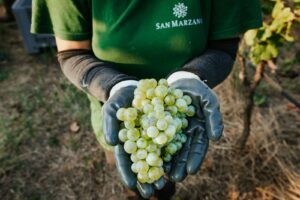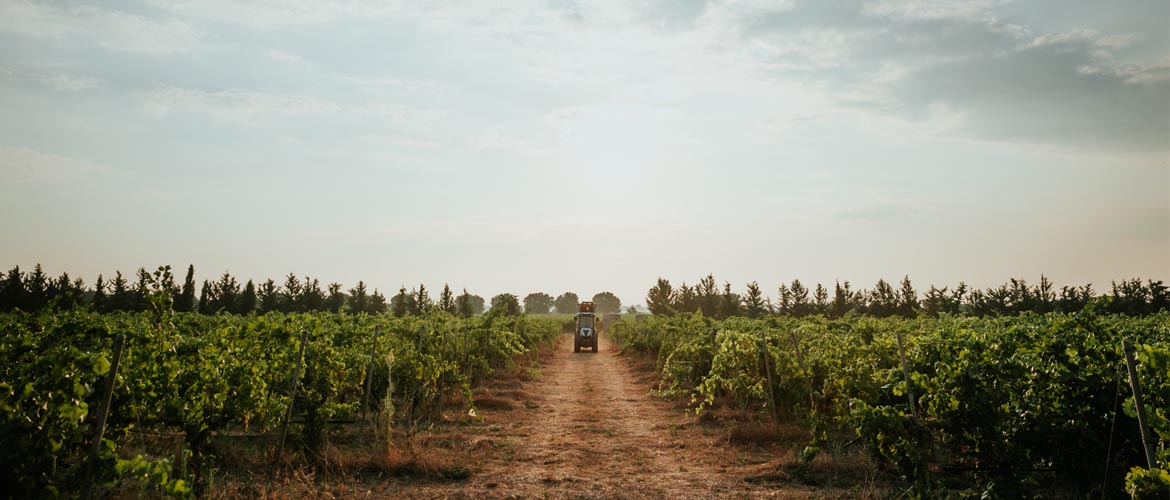Weather report
2019 will be remembered for a particularly cool and rainy spring that at first has cast a shadow on the whole vintage. From flowering (beginning/half may) to fruit setting, abundant rain and humidity worried the farmers.
However, summer saved the day: it arrived later compared to the usual schedule, but it turned out to be very stable until the end of the harvest.
The optimal phytosanitary management in the most worrying period, result of the excellent cooperation between the agronomist and the growers, has helped in overtaking the spring critical phase and in obtaining sane grapes ready to be harvested.

Harvest report
The cool and rainy spring and early summer caused averagely a 12-day delay compared to the last two years. However, the whole harvest period was very stable and considerably long (from Mid-August to Mid-October). For this reason this harvest is, broadly speaking, in line with the average time of the last twenty years’.
The white grapes’ harvest started in Mid-August. Thanks to the mild climate, they reached an excellent balance between the acid profile and the sugar content, the latter having developed slowly and consistently.
The first week of September the first red grapes were picked: Primitivo always on the front line; the first bunches were harvested on September 2nd from the small and typical bush vines, in particular those near the Ionian coast which tend to be the first to bear ripe fruit, due to their low yield and the specific terroir.
As for the grapes grown inland, they also benefited from the mild temperatures of early September: sunny, dry and windy days allowed for a regular and slow ripening. Negroamaro and Malvasia Nera have shown a satisfying sugar content, good acidity and colour.
Overall, both for whites and for reds, quantity has decreased but from the point of view of quality, the specific analytical parameters are very gratifying: good average sugar content, great acidity, as well as colour and phenolic quality that lay the ground for an excellent vintage.
As far as winemaking is concerned, the excellent conditions of the grapes has favoured the maceration process, allowing for a better extraction of the soft tannins. Also the rosés have benefited from a more fragrant fruit, picked at the point of equilibrium between the acid and aromatic components, guaranteeing a perfect control of the short maceration, their winemaking peculiarity.

